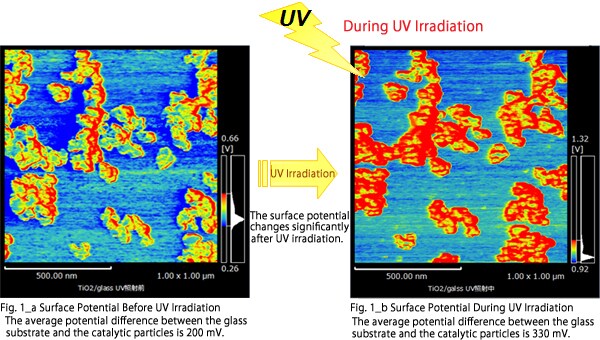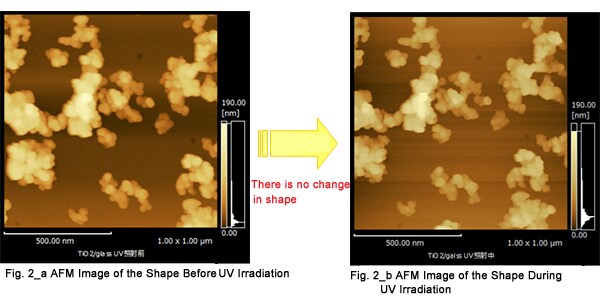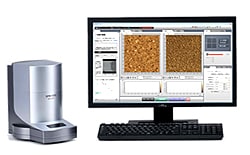In-Situ Measurements Using a Light Irradiation-Scanning Probe Microscope System
Light irradiation-scanning probe microscope systems can measure physical properties and observe surface shapes by irradiating a measurement target with light. Since in-situ measurements can be performed during irradiation, analyses can be performed while the light is being absorbed. This includes measurements of photocatalysts in their excited state, and measurements of power generation by solar cells. This system is ideal for tracking and evaluating changes in a sample due to irradiation with light.
Measurement of Changes in the Surface Potential of TiO2 Photocatalytic Particulates Due to UV Irradiation
TiO2 particulates with a platinum support, which are utilized as a semiconductor photocatalyst, were fixed to a glass substrate. The surface potential and shape were then observed using a scanning probe microscope (SPM). The images on the left were observed as is, in air. The images on the right are the same location, observed while irradiating the sample with UV light from above. In reviewing the 3D images with the atomic force microscope (AFM) (Fig. 2_a and Fig. 2_b), it is evident that the UV irradiation did not change the shape of the catalytic particles. In contrast, the surface potential images (Fig. 1_a and Fig. 1_b) reveal that the surface potential of the catalytic particles increased by an average of 130 mV due to UV irradiation, and that this was a reversible change. This shows that charge separation is likely occurring on the catalytic surface due to the light.


Samples were supplied by Kazuhiko Maeda, Associate Professor at The Department of Chemistry Graduate School of Science and Engineering, Tokyo Institue of Technology.
Scanning probe microscope (SPM) is a generic term for microscopes that scan sample surfaces with an extremely sharp probe to observe their three-dimensional image or local properties at high magnifications. The SPM-9700 offers higher performance, faster speeds, and easier operation.



